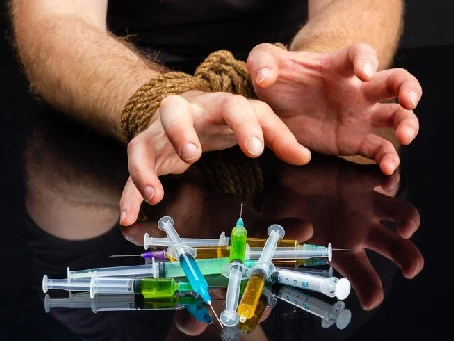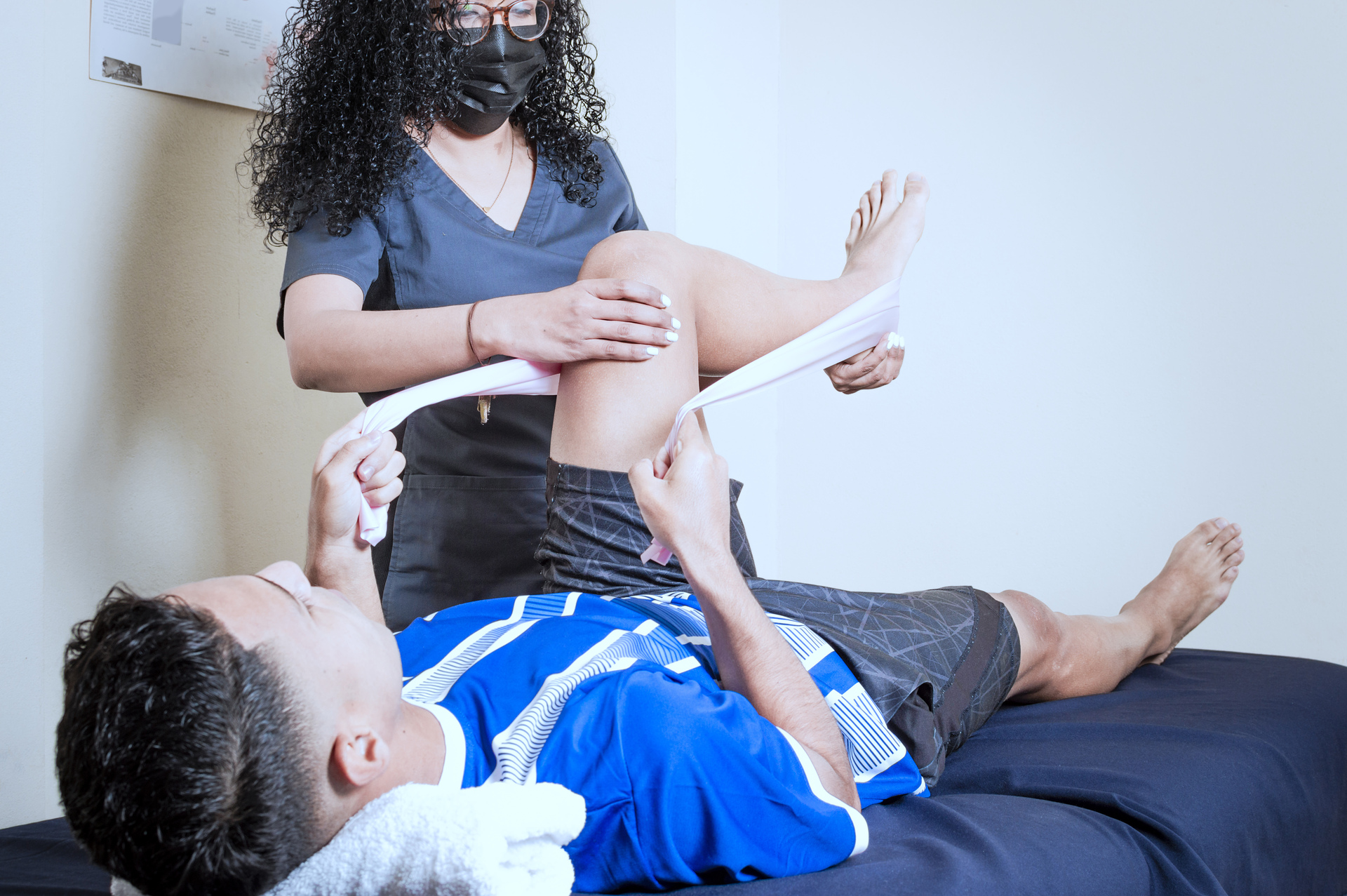Embarking on the journey towards recovery from drug and alcohol addiction necessitates a crucial decision - choosing the right rehab center. Amidst a myriad of options, finding the most suitable facility can be overwhelming. Hence, this comprehensive guide aims to elucidate the pivotal factors essential in selecting the best drug and alcohol rehab centers. In this regard, by examining accreditation, personalized treatment programs, and staff expertise, individuals can make informed choices aligned with their unique needs. Understanding these critical considerations is paramount in ensuring effective, tailored care and maximizing the chances of successful recovery.

Assessing Accreditation and Licensing
-
Importance of Accreditation in Rehab Centers
Accreditation is a critical factor when evaluating rehab centers. It signifies that the facility adheres to stringent standards of care and quality set by accrediting bodies. Furthermore, accreditation ensures whether the rehab center meets or exceeds industry standards. Hence, it provides a clear indication of a commitment to providing evidence-based and ethical treatment practices. So, choosing an accredited facility offers assurance regarding the legitimacy and credibility of the rehab center's services.
-
Understanding Licensing and Certifications
In addition to accreditation, understanding the rehab center's licensing and certifications is crucial. Rehab centers should possess appropriate licenses from state authorities or regulatory bodies. Additionally, it helps to ensure compliance with legal requirements to operate as a treatment facility. Moreover, certifications held by staff members, such as licensed therapists, counselors, and medical professionals, also contribute to the overall quality of care. Hence, it's essential to inquire about the qualifications, certifications, and experience of the staff involved in providing treatment. In this way, this ensures that patients receive care from trained and qualified professionals capable of addressing their specific needs effectively.
Tailored Treatment Programs:
-
Personalized Treatment Plans
Effective drug and alcohol rehab centers prioritize personalized treatment plans tailored to individual needs. However, one-size-fits-all approaches rarely yield optimal results in addiction treatment. For this purpose, assessments on admission should comprehensively evaluate the patient's medical history, addiction severity, mental health, and specific needs. After that, based on this assessment, rehab centers develop customized treatment plans that address the unique challenges of each patient. Personalization in treatment plans may involve a combination of therapies, counseling, medication-assisted treatment, holistic approaches, and supplementary services. All of these are helpful to cater to the individual's requirements for successful recovery.
-
Variety of Therapeutic Approaches
The best rehab centers offer a diverse range of evidence-based therapeutic approaches to address various aspects of addiction and recovery. In this regard, therapies like cognitive-behavioral therapy, dialectical behavior therapy, motivational interviewing, family therapy, and group therapy are commonly utilized. Additionally, holistic therapies such as yoga, mindfulness, art therapy, and meditation can complement traditional approaches. They promote overall well-being during the recovery process. Having a variety of therapeutic modalities allows rehab centers to adapt treatment strategies to meet the unique needs and preferences of individuals. In this way, this variety helps to increase the chances of successful rehabilitation outcomes.
Qualified and Experienced Staff
-
Importance of Trained Professionals
The expertise and qualifications of the staff at a rehab center are pivotal in ensuring the quality and effectiveness of treatment. Trained professionals, including licensed therapists, addiction counselors, medical doctors, psychiatrists, and nurses, play a crucial role in providing comprehensive care. Their specialized knowledge in addiction treatment, mental health, and various therapeutic approaches ensures that patients receive evidence-based care tailored to their specific needs. Patients benefit from the guidance, support, and expertise of these professionals, fostering an environment conducive to healing and recovery.
-
Staff-to-Patient Ratio
The staff-to-patient ratio is another significant aspect to consider. Drug addiction rehab centers with lower staff-to-patient ratios can provide more personalized attention and individualized care. A lower ratio allows staff members to dedicate sufficient time to each patient, offering personalized support, monitoring progress, and addressing any concerns promptly. This personalized approach facilitates a more intimate therapeutic environment where patients feel heard, understood, and supported throughout their recovery journey.
Facilities and Amenities
-
Comfort and Environment
The environment and comfort of the rehab center significantly impact the overall well-being of patients. A serene, safe, and supportive atmosphere promotes a sense of calmness and positivity essential for recovery. Facilities with comfortable living spaces, serene surroundings, and well-maintained accommodations contribute to a conducive healing environment. A welcoming and peaceful setting fosters a sense of security and encourages patients to focus on their recovery without distractions.
-
Recreational Activities
Recreational activities and amenities provided by rehab centers play a crucial role in enhancing the overall treatment experience. Activities such as yoga, fitness programs, art therapy, outdoor excursions, and group recreational activities contribute to holistic healing. These activities not only offer outlets for physical exercise and stress relief but also encourage social interaction, emotional expression, and personal growth. Engaging in such activities can aid in building new, healthy habits and coping mechanisms essential for sustained recovery.

Cost and Insurance Coverage
-
Understanding Rehab Costs
Rehabilatation costs can vary significantly based on multiple factors, including the type of program (inpatient, outpatient), duration of treatment, amenities provided, location, and the level of care required. Inpatient programs, offering around-the-clock care and accommodation, generally tend to be more expensive than outpatient programs. Luxury or executive drug addiction rehab centers, providing upscale amenities, may also have higher costs compared to standard facilities.
-
Insurance and Payment Options
Insurance coverage for addiction treatment can significantly alleviate the financial burden. Health insurance policies may cover a portion or the entirety of rehab expenses, depending on the policy terms, coverage limits, and the specific services included. It's crucial to review the insurance policy thoroughly, understand the extent of coverage for addiction treatment, including inpatient or outpatient rehab, therapy sessions, medications, and follow-up care. Some rehab centers may accept various insurance providers, while others might have specific affiliations or preferred networks. Beyond insurance, rehab centers may offer flexible payment options, such as payment plans, sliding-scale fees based on income, scholarships, or financing options, to accommodate diverse financial situations.
Navigating rehab costs and insurance coverage requires thorough research, communication with rehab centers, and coordination with insurance providers to ensure clarity on expenses and available coverage. Understanding the financial aspects enables individuals to make informed decisions and access the necessary treatment without being overwhelmed by unexpected costs.
Importance of Healing Travel's Medical Tourism
Healing Travel's Medical Tourism stands as an invaluable resource for accessing premier rehab centers worldwide. Their extensive network guarantees access to top-tier treatment facilities renowned for exceptional staff, cutting-edge amenities, and comprehensive care. By leveraging Healing Travel's expertise, individuals seeking rehabilitation can tap into globally recognized centers, ensuring personalized, high-quality treatment in an optimal recovery environment.
It's worth noting that Healing Travel collaborates with drug addiction rehab centers across Serbia, Croatia, Turkey, India, Israel, and South Africa. This expansive network provides diverse options, ensuring individuals have access to tailored programs that suit their unique needs and preferences. In conclusion, the alliance between Healing Travel and rehab centers in multiple countries enhances the journey toward finding the ideal drug and alcohol rehab centers, offering a comprehensive and global perspective on recovery from addiction.
Summary: Making an Informed Decision
Choosing the right drug and alcohol rehab center demands careful consideration of critical factors like accreditation, personalized treatment options, staff expertise, facilities, costs, and insurance coverage. Making an informed decision involves assessing individual needs, aligning them with the center's offerings, and conducting thorough research. By prioritizing accredited facilities with tailored treatment plans, qualified staff, comfortable environments, and accessible payment options, individuals can embark on their recovery journey confidently. Remember, an informed decision tailored to personal needs significantly enhances the likelihood of a successful and sustained recovery. If you are looking for quality services from drug and alcohol rehab centers, choose Healing Travel.






Dodajte Komentar